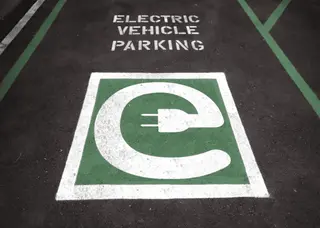Guide to Investing in EV Charging Stations
On this page
Introduction
As the demand for electric vehicles (EVs) continues to rise, the need for efficient and accessible charging infrastructure becomes increasingly crucial. Investing in EV charging stations presents a unique opportunity for businesses and investors alike. This guide aims to provide insights into the advantages of investing in EV charging stations, how to start your own charging station business, essential considerations before making an investment, and the landscape of trustworthy wholesale EV charger manufacturers in China.
Advantages of Investing in EV Charging Stations
Expanding Market Potential
The market for EV charging stations is expanding rapidly as more consumers transition to electric vehicles. According to recent reports, the global electric vehicle market is expected to grow significantly, driven by increasing environmental awareness, government regulations, and advancements in battery technology. This growth in the EV market translates to a higher demand for charging infrastructure, creating a lucrative opportunity for investors.Investing in EV charging stations not only positions you to capitalize on the growing market but also aligns with the global push toward sustainable energy. As governments and organizations work toward reducing carbon emissions and promoting green technologies, the need for efficient and accessible charging options will only increase.
Government Assistance
Governments worldwide are offering various incentives to promote the adoption of electric vehicles and the development of charging infrastructure. These incentives can come in the form of grants, tax credits, rebates, and low-interest loans. For instance, many local and national governments provide financial support to businesses that invest in EV charging stations.Understanding the available government assistance programs can significantly reduce the upfront costs associated with setting up a charging station. Investors should research federal, state, and local programs to identify potential funding sources that can enhance their investment strategy.
Enhanced Business Opportunities
The establishment of EV charging stations opens up various business opportunities beyond the direct charging services. Businesses can leverage charging stations to attract customers, enhance brand visibility, and create additional revenue streams. For example, retail stores, restaurants, and hotels can install charging stations to attract EV drivers, providing them with a convenient option while they shop or dine.Moreover, the growing interest in EVs has led to an increase in related industries, such as EV maintenance, battery recycling, and charging solutions. By investing in charging stations, you may also position your business to explore partnerships and collaborations with these emerging sectors, further enhancing your market presence and profitability.

How to Start an EV Charging Station Business
Starting an EV charging station business requires careful planning and execution. Here are some key steps to consider:Conduct Market Research
Analyze your local market to understand the demand for EV charging stations, competition, and potential customer demographics. This research will help you determine the best location for your charging station.Choose a Suitable Location
The success of your charging station largely depends on its location. Consider placing your station near high-traffic areas, shopping centers, hotels, or residential neighborhoods to maximize visibility and accessibility.Select the Right Equipment
Choose the appropriate EV chargers based on the needs of your target audience. Consider factors such as charging speed, plug types (e.g., Type 1, Type 2, CCS, CHAdeMO), and compatibility with various vehicle models.Secure Financing
Explore funding options to cover the initial costs of purchasing equipment, installation, and any necessary permits. This may include government grants, loans, or private investment.Obtain Necessary Permits and Licenses
Ensure you comply with local regulations regarding the installation and operation of EV charging stations. This may involve obtaining permits, adhering to zoning laws, and meeting safety standards.Install the Charging Stations
Partner with qualified contractors to install the charging stations and ensure they are set up correctly and safely.Promote Your Charging Station
Once your charging station is operational, implement marketing strategies to attract EV drivers. Utilize social media, local advertising, and partnerships with businesses to raise awareness.Essential Considerations Before Investing in EV Charging Stations
Before committing to an investment in EV charging stations, consider the following factors:Initial Costs
Assess the total costs associated with purchasing and installing charging equipment, as well as ongoing operational expenses.Return on Investment (ROI)
Estimate the potential ROI based on local demand, pricing strategies, and expected usage rates of your charging stations.Competition
Analyze the competitive landscape in your area. Understanding the existing charging infrastructure will help you identify gaps in the market and opportunities for differentiation.Technology Trends
Stay informed about advancements in charging technology and evolving consumer preferences. This knowledge will help you adapt your business strategy to remain competitive.Partnership Opportunities
Explore potential collaborations with local businesses, municipalities, or EV manufacturers to enhance your service offerings and attract more customers.Discover Trustworthy Wholesale EV Charger Manufacturers in China
When investing in EV charging stations, sourcing high-quality equipment from reliable manufacturers is crucial. cnmfrs.com specializes in connecting buyers with reputable Chinese manufacturers across various industries, including EV chargers. The B2B platform offers a wide range of competitively priced, high-quality products, ensuring buyers can find the right solutions for their charging station needs.cnmfrs.com features a user-friendly interface that allows international buyers to easily browse, search, compare, and communicate directly with trusted Chinese suppliers. The platform is dedicated to fostering trust and transparency, employing rigorous verification processes for all listed manufacturers. In addition to facilitating connections, cnmfrs.com offers valuable resources, including industry insights, market trends, and customized sourcing solutions to support informed purchasing decisions.
Opportunities and Challenges in EV Charging
Investing in EV charging stations comes with both opportunities and challenges. While the growing market and government incentives present significant advantages, investors must also navigate potential obstacles, such as high initial costs, regulatory complexities, and evolving technology standards.To succeed in this emerging industry, investors should remain adaptable and informed. Keeping up with industry trends, understanding consumer behavior, and building strong partnerships can help mitigate risks and enhance the potential for success.
Conclusion
Investing in EV charging stations offers a promising opportunity to tap into the expanding market for electric vehicles. With the right planning, understanding of market dynamics, and knowledge of available resources, investors can successfully launch their charging station businesses. By capitalizing on government assistance, identifying advantageous locations, and selecting trustworthy suppliers, you can position yourself for long-term success in this rapidly evolving industry. As the shift toward sustainable transportation accelerates, investing in EV charging infrastructure not only supports this transition but also paves the way for profitable business ventures.Next: How to Purchase Wholesale Directly from Chinese Factories
Previous: A Comprehensive Guide to Importing EV Chargers from Chinese Suppliers
